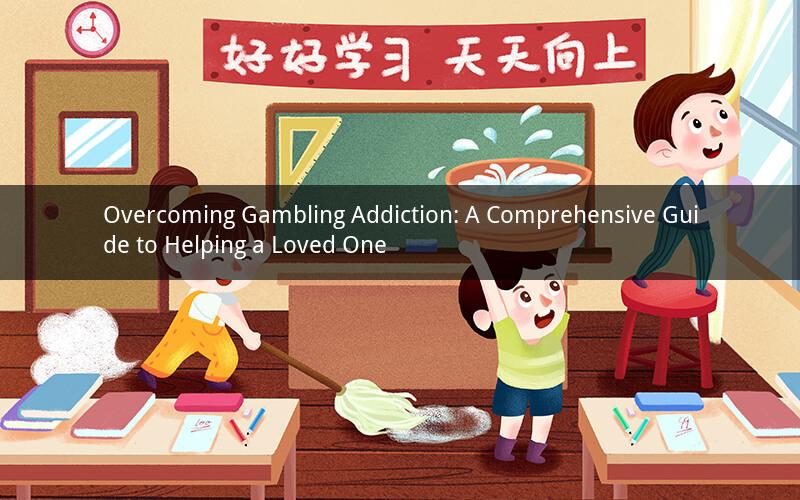
Gambling addiction is a complex issue that can have devastating consequences for both the individual and their loved ones. If you know someone struggling with this problem, it's crucial to understand how to help them effectively. This guide will provide you with valuable insights and strategies to support a person with gambling addiction.
Understanding Gambling Addiction
1. What is gambling addiction?
Gambling addiction, also known as compulsive gambling or problem gambling, is a chronic and progressive condition characterized by an inability to control the urge to gamble, despite negative consequences. It is a form of addictive behavior that can affect people of all ages, genders, and socioeconomic backgrounds.
2. Symptoms of gambling addiction
Recognizing the signs of gambling addiction is the first step in helping a loved one. Common symptoms include:
- Preoccupation with gambling thoughts
- Needing to gamble more money to achieve the same thrill
- Lying about gambling activities
- Neglecting responsibilities at work, school, or home
- Using gambling as a way to cope with stress or emotions
- Risking or losing relationships, jobs, or education due to gambling
3. Causes of gambling addiction
Several factors can contribute to the development of gambling addiction, including:
- Genetic predisposition
- Brain chemistry imbalances
- Environmental factors, such as exposure to gambling at a young age
- Mental health issues, such as depression, anxiety, or substance abuse
Supporting a Loved One with Gambling Addiction
1. Educate yourself about gambling addiction
To effectively help someone with gambling addiction, it's essential to understand the condition and its complexities. Learn about the signs, symptoms, and treatment options available. This knowledge will enable you to provide informed support and encouragement.
2. Encourage open communication
Create a safe and non-judgmental environment for your loved one to express their feelings and concerns. Encourage them to share their struggles with you and listen actively without judgment. This open dialogue can foster trust and strengthen your relationship.
3. Encourage professional help
Encourage your loved one to seek professional help from a therapist, counselor, or psychologist specializing in gambling addiction. Therapy can provide them with the tools and strategies to overcome their addiction and develop healthier coping mechanisms.
4. Support their treatment plan
Once your loved one has entered treatment, it's crucial to support their plan. This may include attending therapy sessions, attending support groups, or participating in other recommended activities. Be there for them during these challenging times and offer your unwavering support.
5. Set boundaries and consequences
Establish clear boundaries and consequences for gambling-related behaviors. This may involve limiting access to gambling opportunities, removing credit cards, or taking control of financial matters. Setting boundaries can help hold your loved one accountable and prevent relapse.
6. Be patient and understanding
Recovery from gambling addiction is a long and challenging process. Be patient with your loved one and understand that setbacks are a part of the journey. Encourage them to stay committed to their recovery goals and celebrate their successes, no matter how small.
7. Take care of yourself
Supporting someone with gambling addiction can be emotionally and physically taxing. It's essential to take care of your own well-being to ensure you can continue providing the necessary support. Seek support from friends, family, or support groups for yourself.
Frequently Asked Questions
1. Can gambling addiction be cured?
Gambling addiction is a chronic condition, but it can be managed and controlled with proper treatment and support. While there is no cure, recovery is possible with dedication and commitment.
2. How can I help my loved one stop gambling?
Encourage them to seek professional help, establish boundaries, and support their treatment plan. Educate yourself about gambling addiction and be patient and understanding throughout the recovery process.
3. Will my loved one's gambling addiction ever go away?
While recovery is possible, gambling addiction is a chronic condition that requires ongoing management. With proper treatment and support, your loved one can maintain a healthy and fulfilling life.
4. Can I force my loved one to seek help for their gambling addiction?
While you can encourage and support your loved one in seeking help, you cannot force them to do so. Respect their autonomy and continue to offer support, even if they resist at first.
5. How can I cope with the stress of supporting someone with gambling addiction?
Seek support from friends, family, or support groups for yourself. Practice self-care, set boundaries, and remember that taking care of your own well-being is crucial for providing effective support to your loved one.